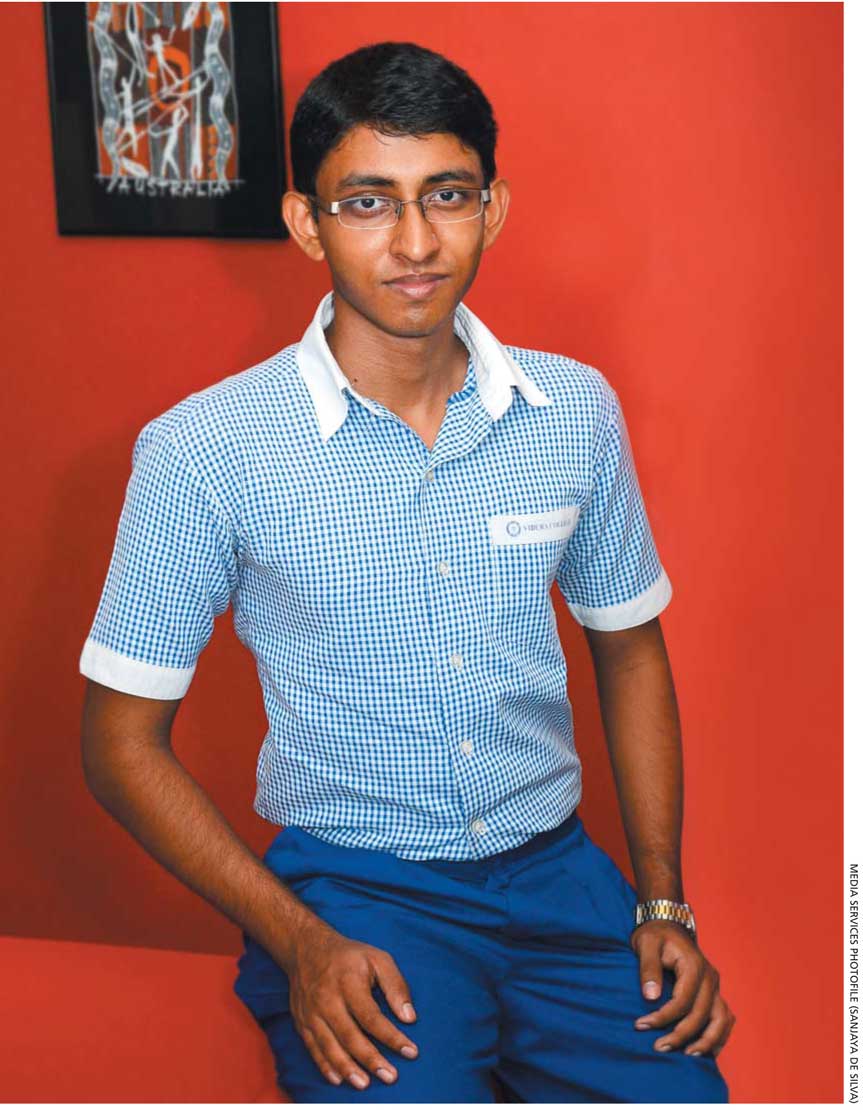YOUTH FORUM
IT’S TIME TO PASS THE BATON
Chayu Damsinghe calls on the powers that be to harness youth potential
Compiled by Savithri Rodrigo
Q: What are the challenges facing the country, today?
 A: Sri Lanka was a multicultural nation before recorded history. One of the main problems we face today is that this has been taken to extremes, by both the Government and the Opposition being politically and even socially motivated.
A: Sri Lanka was a multicultural nation before recorded history. One of the main problems we face today is that this has been taken to extremes, by both the Government and the Opposition being politically and even socially motivated.
It has come to a point where outspoken elements – such as the ‘Sinhale’ group and even people in the Government – want to point out how one community is somehow better than the other. The trend of seeing politics and politicians in black or white, and writing them off as being harmful or presumptuous, paints a dire picture for the future.
Q: What changes do you see, in the context of nation-building and reconciliation?
A: From one government to another, from one age to another, little seems to have happened. There might be change in handling small issues that
don’t seem tangible, but they are negligible.
After the war, priority should have been given to social integration. The perfect time might have passed, but nothing is being done even now.
 Q: What changes do you see in the spheres of education and women’s empowerment?
Q: What changes do you see in the spheres of education and women’s empowerment?
A: In education, more attention must be paid to empowering creative thinking, versus gaining the highest marks by memorising. It is vital that more people buy into the concept of women’s empowerment. Having more women in politics, and more social awareness on why women must be empowered, will help enormously.
Q: Do we have young leaders who can take this country forward?
A: There are definitely many people in schools and universities with the vision, skills and passion to do right by the country.
Unfortunately, social stereotypes paint youth as being inexperienced, making it a reason to view young people as making bad choices.
Youth leaders need to have the drive and passion to overcome this, displaying with confidence and by example that they can lead, and that the good they do will matter.
Q: What are your expectations of the world, and its people?
A: It’s too idealistic to expect everyone to become selfless messiahs of altruism. However, anyone can stand for good values, equality and freedom. Everyone must fight for something in which they believe, and someone will be better off because of it. We face huge life-threatening issues. It is important that people continue to feel that there’s hope; and that by standing together, they can take a step forward.
Q: Do the present world leaders live up to your expectations?
A: A few leaders try to make their people happy, offering liberty and ensuring that there’s no ill will among them. These are individual leaders who try to change their countries for the better, but the system never helps. Canada’s Prime Minister and his Cabinet set a good example by installing competent people in public office, instead of those who have been shouting nonsense in Parliament for the longest time.
Q: What challenges do young people face, in the global context?
A: While there are many young people who continuously prove the power of youth to the world, the stereotype that youth are young and dumb persists, especially in developing countries. This leads to fewer opportunities, with no allowance for social connections.
Even when a young person tries to make a social statement and stand for something in which he or she believes, there is active discouragement rather than encouragement, as people disregard these beliefs merely because of age.
Social stereotypes take a long time to change, but support from the Government for young entrepreneurs and youth voices can lead to great gains.
Q: Do you believe that Sri Lanka will be united one day?
A: If Sri Lanka continues in this direction, unity will become a far-fetched idea. Governments must stop blaming people, trying to prove that old choices were wrong and working only towards re-election.
They should, instead, focus on helping people live in unity, peace and harmony, eliminating social prejudices and working on integrating people from all ethnicities and religions. Then, one day, maybe this land will be united.



